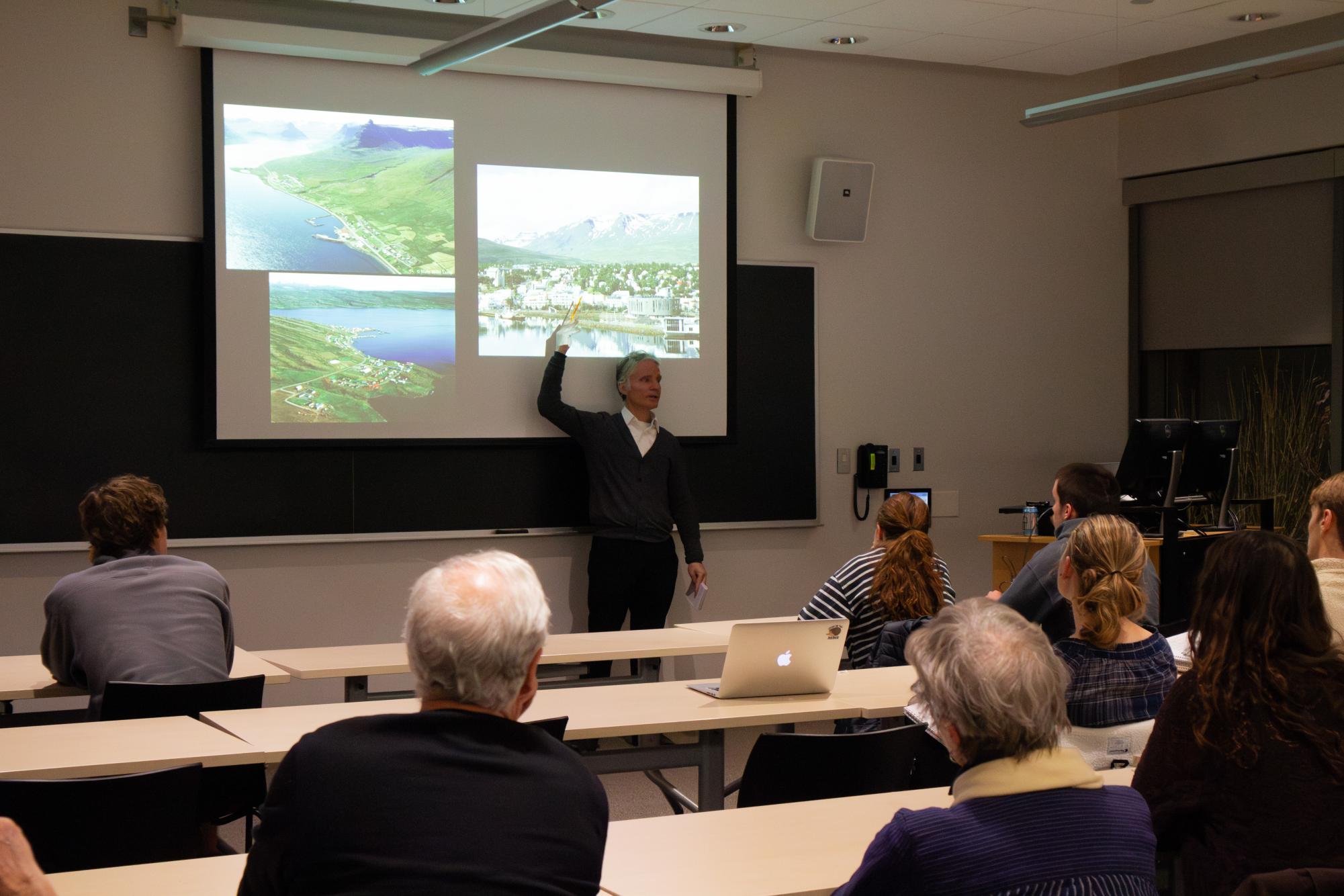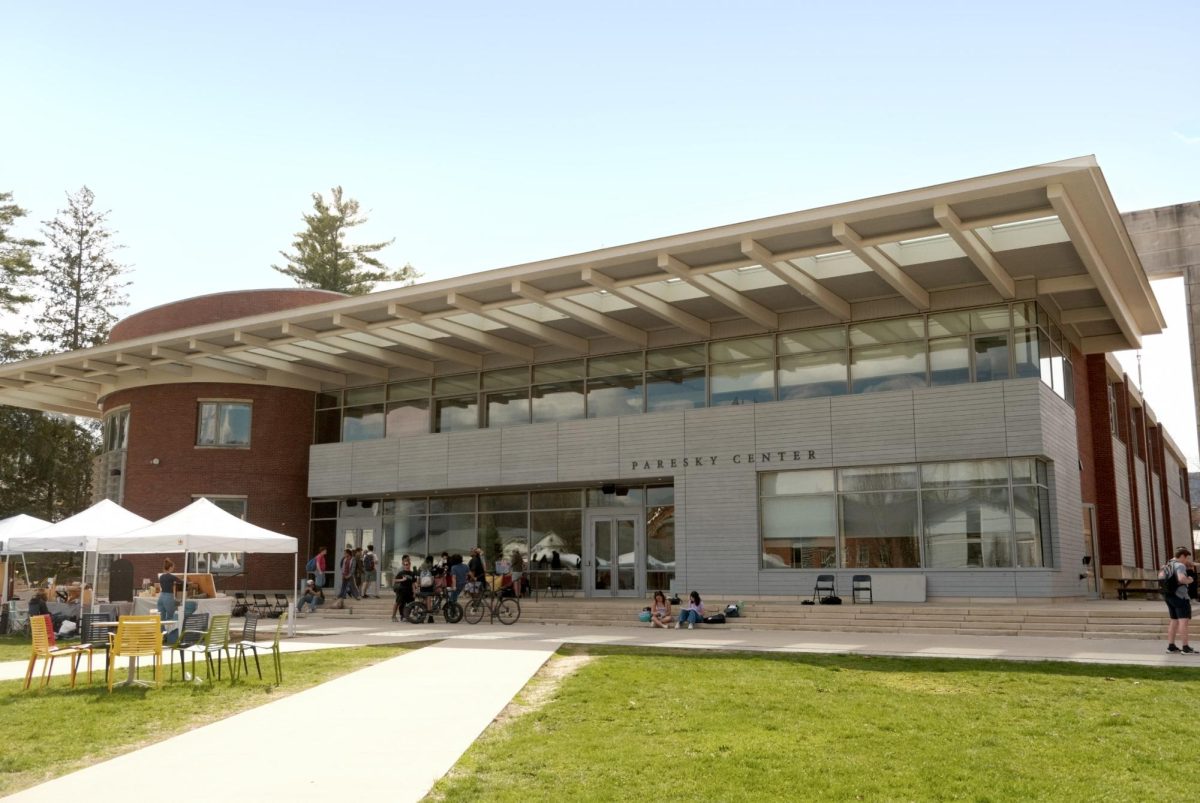
Magnús Bernhardsson, professor of history and chair of global studies, presented the initial findings of his three-year research project at a presentation in Schapiro Hall on Nov. 14. The project — a study of refugee families from Syria and Iraq who resettled in Iceland between 2016 and 2021 — is a collaboration between Bernhardsson and Hanna Ragnarsdóttir, a professor of multicultural studies at the University of Iceland’s School of Education. It is funded by one of four annual Grants of Excellence from the Icelandic Research Fund, which will total up to $1 million.
Iceland is among the 27 countries that participate in the United Nations High Commissioner for Refugees resettlement program, which mandates that they accept a designated quota of refugees for resettlement each year. These refugees enter via the government’s resettlement plan, which provides housing, jobs, stipends, and a fast track to citizenship. Between 1956 and 2016, Iceland received 584 resettlement refugees — about 10 per year, Bernhardsson wrote in an email to the Record. In 2015, the Icelandic government changed its policies and now seeks to accept at least 50 per year.
Bernhardsson, a native Icelander, said his country’s unique circumstances — high employment rates, economic prosperity, the absence of a military, a small homogenous population, and the lack of a prominent anti-immigrant party — created ideal conditions for the country to welcome newcomers.
To date, Bernhardsson’s team has conducted 240 interviews with resettled children, their parents, and locals in the municipalities where refugees have settled, including school employees, nongovernmental organizations, support families, and members of various religious organizations.
Bernhardsson said one of his most surprising findings so far was that refugees in small rural towns report higher levels of happiness than those placed in more urban areas. In rural communities, Bernhardsson’s team found that refugees feel the most welcomed and safe.
“There’s that sense of community and people taking care and really going out of their way to be aware of that,” he said. “I did not expect that.”
Another notable finding, Bernhardsson said, was the refugees’ strong sense of agency. “Not only in terms of the efforts they put into learning the very difficult Icelandic language but also trying to maintain connections to their home culture,” he said. “They are not just straws in the wind. They are part of this story.”
The research, however, hasn’t been all smooth sailing: The team has faced challenges regarding the refugees’ willingness to participate in the study. “These are people who have been fleeing a certain sort of situation — to speak about it relatively shortly after is a big ethical consideration,” he said. “Some people have resisted to participate, but I think if we ask them again, maybe next year, they might come around.”
Ultimately, Bernhardsson hopes that the project’s findings will result in policy recommendations for Iceland to ensure improved refugee resettlement. “We’re dealing with real-world issues and therefore we want to be helpful and hopefully change some practices, approaches, and attitudes,” he said. “I think there might be somewhat of an expectation from the various sorts of people who funded us that there would be something practical coming out of this.”
Bernhardsson’s team is planning an international conference for research related to refugees in Iceland planned for October 2025. He hopes to have a similar conference in Williamstown with academics based in the United States. The project is planned to conclude in May 2026.














